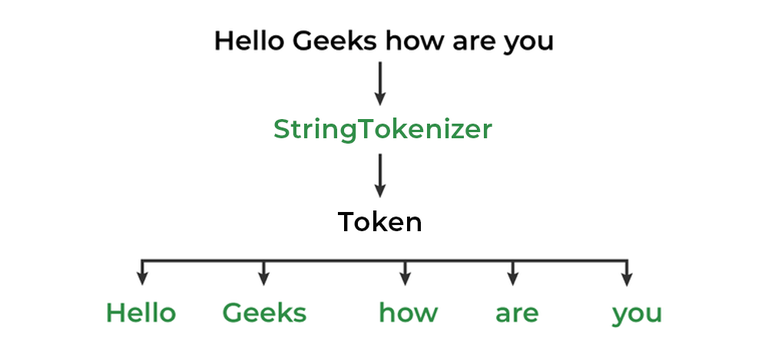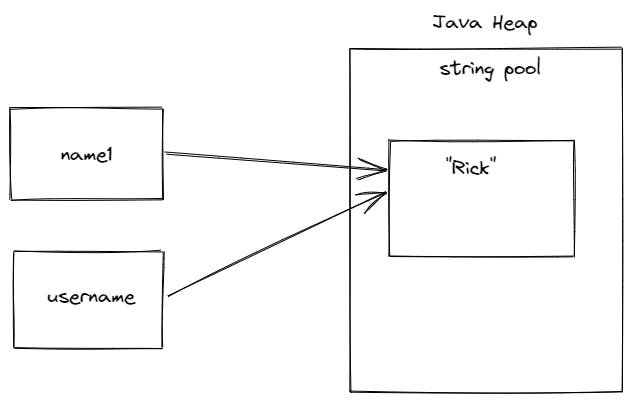Why Are Strings Immutable in Java? Best Practices and Use Instances
Why Are Strings Immutable in Java? Best Practices and Use Instances
Blog Article
Discovering the Advantages of Immutable Strings in Modern Programs Paradigms
In the realm of modern-day programming standards, the concept of immutable strings stands as a cornerstone of robust software program development. The advantages they provide go past mere benefit; they fundamentally change the method information is managed within applications. By taking on immutable strings, developers can make sure improved data honesty, boosted thread safety, streamlined debugging processes, raised protection steps, and effective efficiency optimization. These benefits serve as a testament to the extensive impact that welcoming immutability can carry the reliability and effectiveness of software application systems.
Enhanced Information Integrity

By avoiding the alteration of string objects, immutability removes the risk of unintentional changes to the data they hold. This not only improves the safety of the information yet additionally improves the integrity of the code that depends on these strings.
Immutability also sustains safer multithreading settings, as concurrent accessibility to unalterable strings does not present the risk of data corruption via synchronised adjustments. This residential property streamlines the process of handling strings in parallel programming situations.
Essentially, immutability works as a protective shield around the data stored within strings, improving their integrity by guaranteeing that when defined, their worths continue to be unmodified throughout the program's execution.

Improved Thread Safety
Immutable strings improve the thread safety of programs by making sure that once a string things is developed, its value can not be modified. This residential property gets rid of the threat of concurrent threads attempting to customize the exact same string concurrently, which might lead to data corruption or irregular states in the program - Why are strings immutable in Java?. In a multi-threaded setting, where numerous threads access and adjust information all at once, the immutability of strings provides a degree of security by guaranteeing that the data remains unchanged throughout its lifecycle
Simplified Debugging Processes
Given the improved string safety and security assisted in by immutable strings, a substantial advantage emerges in the realm of streamlined debugging processes. Unalterable strings, as soon as produced, can not be altered, making it easier to trace the flow of data and identify the resource of insects in a program. This immutability makes certain that strings stay regular throughout the implementation of the program, reducing the likelihood of unforeseen adjustments that might cause errors.
When debugging with mutable strings, programmers commonly experience concerns where a string's value is modified unintentionally, making it testing to determine the source of a bug. However, with unalterable strings, the information remains unmodified, permitting developers to concentrate on analyzing the real logic of the code instead of finding where and when a string was modified improperly.
Furthermore, immutable strings simplify the debugging process by allowing much easier reproduction of insects. Considering that unalterable strings do not alter state, developers can recreate and examine pests better, leading to quicker recognition and resolution of problems within the codebase. This structured debugging workflow eventually adds to higher software application quality and boosted overall development efficiency.

Increased Protection Measures
Enhancing information protection and strengthening system honesty, the application of unalterable strings in software program applications contributes substantially to raised safety steps. Unalterable strings also play a vital duty in avoiding usual security vulnerabilities such as barrier overflows and SQL shot attacks, as attempts to manipulate string data at runtime are inherently restricted.
Furthermore, the immutability of strings enhances the predictability of program actions, making it less complicated to validate inputs and stop unexpected modifications that might compromise safety. This predictability streamlines the process of bookkeeping and verifying code, allowing developers to identify possible safety and security loopholes extra effectively. Generally, including immutable strings into software growth practices not only enhances the toughness and integrity of applications but additionally reinforces their resilience versus security risks.
Effective Performance Optimization
When dealing with mutable strings, procedures like concatenation or substring production commonly result in the creation of brand-new string objects, leading to memory overhead and boosted handling time. By permitting strings to stay stable and continuous, unalterable strings help with better memory monitoring and caching chances, eventually enhancing the total effectiveness of the software.
Immutable strings additionally play see here now an important duty in multithreaded atmospheres by promoting thread safety and security. Why are strings immutable in Java?. Because unalterable strings can not be modified once produced, they can be shared throughout threads without the risk of unforeseen adjustments, decreasing the requirement for synchronization devices and boosting concurrency. Additionally, unalterable strings simplify debugging processes as developers can trust that a string's value will certainly stay regular throughout the program's execution, getting have a peek here rid of potential errors triggered by mutable state modifications. To conclude, using unalterable strings not just enhances protection however likewise significantly adds to the efficient performance optimization of contemporary software application systems.
Conclusion
Finally, the advantages of using unalterable strings in contemporary programs standards can not be overemphasized. Enhanced data integrity, improved thread safety and security, simplified debugging processes, enhanced protection steps, and efficient performance optimization all add to the total efficiency of programs tasks. By including unalterable strings right into shows practices, developers can gain from an extra trustworthy and durable codebase.
Immutability, a key function of strings in programs languages such as Java and Python, makes sure that once a string object is created, it can not be altered or customized.Unalterable strings boost the string safety of programs by ensuring that when a string things is developed, its value can not be changed. Unalterable strings additionally play a crucial function in protecting against common security see this vulnerabilities such as buffer overflows and SQL injection attacks, as efforts to control string information at runtime are naturally restricted.
By allowing strings to stay stable and continuous, unalterable strings facilitate much better memory management and caching possibilities, ultimately boosting the overall effectiveness of the software application.
Immutable strings streamline debugging processes as designers can trust that a string's value will remain consistent throughout the program's execution, getting rid of potential errors caused by mutable state adjustments.
Report this page